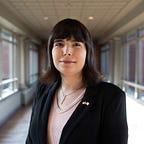There are 11,000+ LGBTQ+ people in Hamilton County, Tennessee who are eligible voters.
They’re watching every move you make this election season. And every move you don’t make.
Hello, representatives, candidates, and friends in the political arena in Hamilton County and Chattanooga, Tennessee!
Glad to have you with us.
A friend of mine and fellow organizer recently asked me how many LGBTQ+ people in Hamilton County were eligible to vote in this year’s election.
So I was curious, and decided to try to do an analysis on just that topic. My findings are below.
Estimating National Voting Population
In order to find out how many eligible voters there are in Hamilton County without polling them all — many pollsters and scientists will tell you that it is difficult to poll on questions of sexual orientation and gender identity, for many reasons — and because the U.S. Census refuses to include broad questions on sexual orientation and gender identity, the best we can do is rely on existing statistics.
According to the United States Census Bureau, as of this writing, the current population of the United States is 327,787,707. For the sake of simplicity in this math, we’ll use the round number of 325 million people in the United States.
Now, eligible voters are a smaller portion of that, clocking in at around 235 million voters.
So, 235 million is about 72% of 325 million. We can use these rough figures to apply down to eligible voters locally.
What about members of the GSM community?
For the sake of this estimate, we will use the somewhat conservative estimate that 4.5% of the national population identifies as being a member of a Gender and Sexual Minority community.
That means, using this conservative estimate, that the total national population of GSM persons is 14.6 million. Using our 72% figure, that means that 10.5 million LGBTQ+ people are eligible to vote nationally.
Local Population Estimates
The current population of Hamilton County, Tennessee is 354,098 as of 2015.
If we apply our 4.5% estimate, that would put our local LGBTQ+ population at 15,934.
Which means there are at least 11,472 eligible LGBTQ+ voters in Hamilton County.
In other nations where levels of acceptance are higher, rates as high as 16% are reported. In our nation’s capital, for example, the rate is 10%.
As such, we believe the 11,472 figure is very conservative, and an eligible population closer to 18,000 or higher is likely. And our community’s allies and supporters’ numbers are even greater.
And as community organizers, we’re going to do everything in our power to get as many of our fellow community members and allies to vote this year as possible.
So, what makes an LGBTQ+ person vote for a candidate?
Issues-based voting
LGBTQ+ people will predominantly vote on issues — is a candidate supportive of the community, generally?
Does the candidate believe that LGBTQ+ people should be guaranteed the same rights as every other American — access to public services, to housing, to healthcare, and employment, unfettered by discrimination based on their status?
Has the candidate publicly made a statement to support specific, affirming policy once they take office?
One such policy currently being worked on by the community is the Chattanooga Equality Ordinance — the ordinance would protect LGBTQ+ citizens from discrimination. And organizers want to extend that effort to the county after the city has passed the ordinance.
Why? Because equal rights for LGBTQ+ citizens can literally save lives.
Think about what your life would be like if you couldn’t get a job, find a place to live, or get a good education because of who you are and the way you were born.
One result? Suicide rates due to discrimination are incredibly high in the LGBTQ population. For example, 44% of transgender people have attempted suicide before the age of 24.
Evidence also shows that equal rights for LGBTQ+ citizens affects the economy of a region.
In areas that have equality, economies are stronger.
When states or cities don’t support their LGBTQ+ population, businesses may choose not to locate there, visit, or even shut their doors and leave. When North Carolina passed an anti-LGBT law, billions of dollars were lost across the state.
If you’re running for office — or are in office — this issue should matter to you, because it matters to your citizens. And come election time, they’ll look to see how you stand before casting their ballots.
